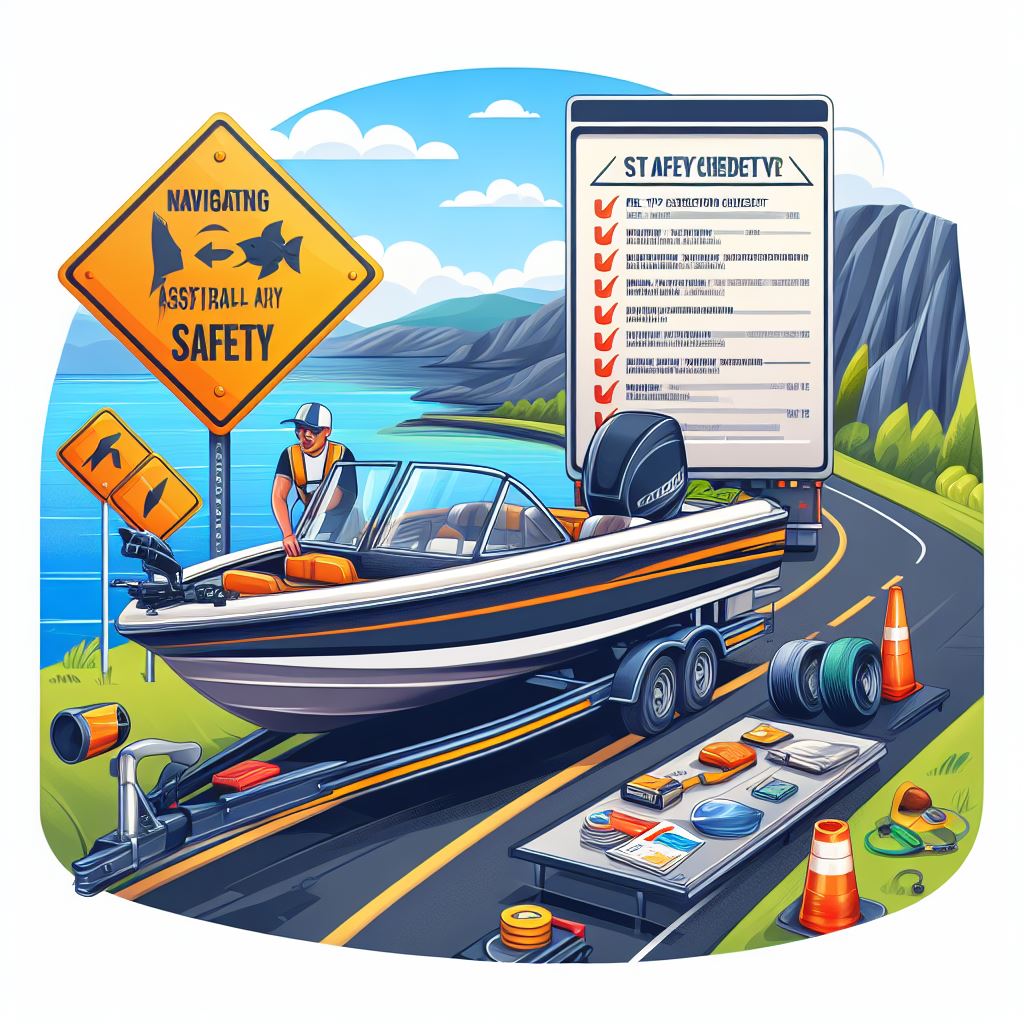When it comes to enjoying the thrills of bass boating, the journey to and from the water is just as crucial. Ensuring that your boat is safely transported using a trailer requires a comprehensive understanding of laws, safety protocols, and regular maintenance. Let’s deep dive into this subject.
Understanding Bass Boat Trailer Laws
Understanding the intricate details of bass boat trailer laws is not just a legal necessity but also ensures safety.
- Federal Regulations: Uniformity in standards across states is essential for smooth interstate transport.
- Importance of Uniform Standards: These provide a baseline for manufacturers and users, ensuring every trailer meets minimum safety standards regardless of where it’s used.
- State-Specific Requirements: While the federal laws provide a baseline, individual states might add their own nuances.
- Variance from State to State: For instance, while one state might focus on environmental factors like exhaust emissions, another might emphasize roadworthiness.
- Trailer Size and Weight Restrictions: Beyond legal implications, there’s the safety of your vessel and fellow road users.
- Implications of Overloading: Exceeding weight restrictions can strain your vehicle, lead to brake failures, or even damage roads.
Safety Protocols for Bass Boat Trailers
Ensuring a safe journey begins before even setting out.
- Pre-Trip Inspections: This is the first line of defense against unforeseen issues.
- Detailed Checklist for Pre-Trip: This includes checking tire pressure, ensuring all lights work, and verifying that safety chains are secure.
- Securing Your Boat Properly: It’s not just about having it on the trailer, but ensuring it stays there.
- Using the Right Gear and Technique: Utilize marine-grade ropes and ensure even weight distribution.
- Safety Gear and Equipment: It’s better to have it and not need it than the other way around.
- Essential List for Emergency Situations: A jack, wheel chocks, spare tires, and an emergency toolkit are must-haves.
Driving Safely with a Trailer
Towing a trailer, especially with a precious cargo like a boat, requires an adjusted driving technique.
- Maneuvering Techniques: With the added length and weight, maneuvering becomes a skill.
- Best Practices and Common Mistakes: Wide turns, allowing for extended stopping distances, and avoiding sudden maneuvers are key.
- Speed Limit Considerations: Safety over speed, always.
- Understanding Impact on Stopping Distance: The heavier the load, the longer it takes to stop.
- Dealing with Wind and Weather Conditions: Mother Nature can be unpredictable.
- Tips for Driving in Adverse Weather: Lower your speed, increase following distance, and be ready to pull over if conditions deteriorate.
Parking and Storing Your Trailer
The journey doesn’t end once you reach your destination.
- Ideal Locations: Your boat and trailer’s safety continues even when parked.
- Evaluating Suitable Parking Spots: Look for well-lit areas, preferably under surveillance, and away from busy streets.
- Safety Measures to Prevent Theft: Sadly, thefts do occur.
- Advanced Security Tools and Solutions: Consider investing in GPS trackers, advanced locking systems, and even wheel clamps.
Regular Maintenance for Safe Use
A well-maintained trailer is a safe trailer.
- Checking Trailer Lights and Wiring: This isn’t just a legal requirement; it’s a safety one.
- Monthly and Yearly Maintenance Tips: Regularly inspect wiring for wear and replace bulbs as needed.
- Brake and Tire Checkups: Brakes and tires bear the brunt of the load.
- Signs of Wear and Tear: Look for uneven tire wear and test brakes for responsiveness.
- Addressing Rust and Corrosion: The longevity of your trailer is directly tied to its upkeep.
- Long-Term Care for Prolonged Trailer Life: Regular cleaning, especially after trips to saltwater locations, can prevent rust.
Conclusion Transporting your bass boat is a task that demands respect. By understanding and adhering to laws, prioritizing safety, and maintaining your trailer, you ensure countless safe journeys to your favorite boating spots.
FAQs
- How often should I inspect my boat trailer?
- Regularly, with a thorough check before each trip.
- What are the repercussions of not following trailer laws?
- Beyond legal penalties, there’s the potential risk of accidents and damage.
- Why do trailer laws vary by state?
- Different states have varying terrains, climates, and other considerations that influence their regulations.
- What’s the risk of not properly securing my boat?
- Improper securing can lead to damage, loss of the boat, or even severe road accidents.
- How can I learn about the specific trailer laws in my state?
- Most states provide this information online, or you can contact local law enforcement or transportation departments.


